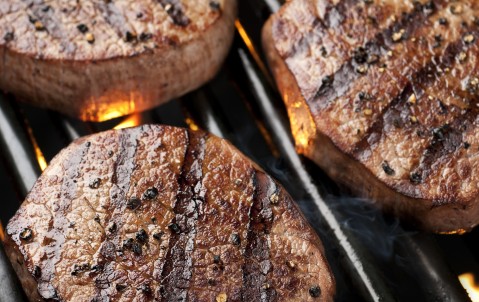
Food probe creates meaty problem
The Russell Hume investigation has exposed how food firms’ reputations can be damaged through no fault of their own.
The safety scare left thousands of restaurants, catering businesses and food manufacturers temporarily unable to offer some top-selling dishes and exposed how vulnerable these businesses are to their suppliers.
Wetherspoon, Hilton Hotels, Jamie’s Italian and Marston’s Pubs were among the companies forced to withdraw meat from their menus after Britain’s food safety regulator ordered Russell Hume Ltd to stop all deliveries and recall its products.
“Everyone takes for granted that, when they go out for a meal, the food they eat is safe. Anything that undermines that assumption can cause a food business lasting damage,“ says John Naughton, a product recall underwriter at Hiscox London Market.
“If customers can’t eat their favourite meal at to your restaurant, or if they have any doubts about the food you serve, then they may steer clear in future – even if the problem had nothing to do with you or the hygiene standards at your premises,” Naughton says.
Everyone takes for granted that, when they go out for a meal, the food they eat is safe. Anything that undermines that assumption can cause a food business lasting damage
The first that the public knew about the problem was when Wetherspoon told customers on January 23 its popular weekly “Steak Club” was cancelled due to “quality issues with out meat supplier”. The pub chain serves around 200,000 steak meals each week.
Although meat was soon being served again, the affected pubs and restaurants would all have suffered some financial loss from the upheaval, whether from customers going elsewhere, the cost of recalling affected products from branches around the country, to having to source new meat from a different supplier. “There is no guarantee that any of these companies will be able to get that money back from the supplier, which could cause some food businesses a severe cashflow problem,” says Naughton.
Caught with egg on face after meat worries
The Food Standards Agency (FSA) stopped Russell Hume from selling meat products after an unannounced inspection at its Birmingham site on January 12 revealed “serious non-compliance with food hygiene regulations,” reportedly to do with its processes regarding use-by dates. Customers were told to return all unused meat to the supplier.
Russell Hume went into administration in February, citing “impossible trading conditions” resulting from the shutdown. Although the FSA allowed the company to resume production and distribution from its Liverpool site, the company’s administrator said that “significant customer attrition” coupled with little prospect of production restarting across the business meant the company was forced to close.
There is no guarantee that any of these companies will be able to get that money back from the supplier, which could cause some food businesses a severe cashflow problem
The episode offers ample proof of how badly a food scare can dent a business’s image and balance sheet, says Naughton. “Food safety is paramount in today’s society. Consumers demand confidence in the quality of their products. Once that confidence is brought into question, it can be extremely difficult to win it back, even if it wasn’t your fault in the first place.”
Hiscox offers contamination insurance to food and drink manufacturers and restaurant owners who are caught up in a problem with their supply chain or a government recall. It covers a range of related expenses, such as loss of revenue and cleanup costs, as well as the round-the-clock services of a crisis consultant to help protect the client’s reputation.



